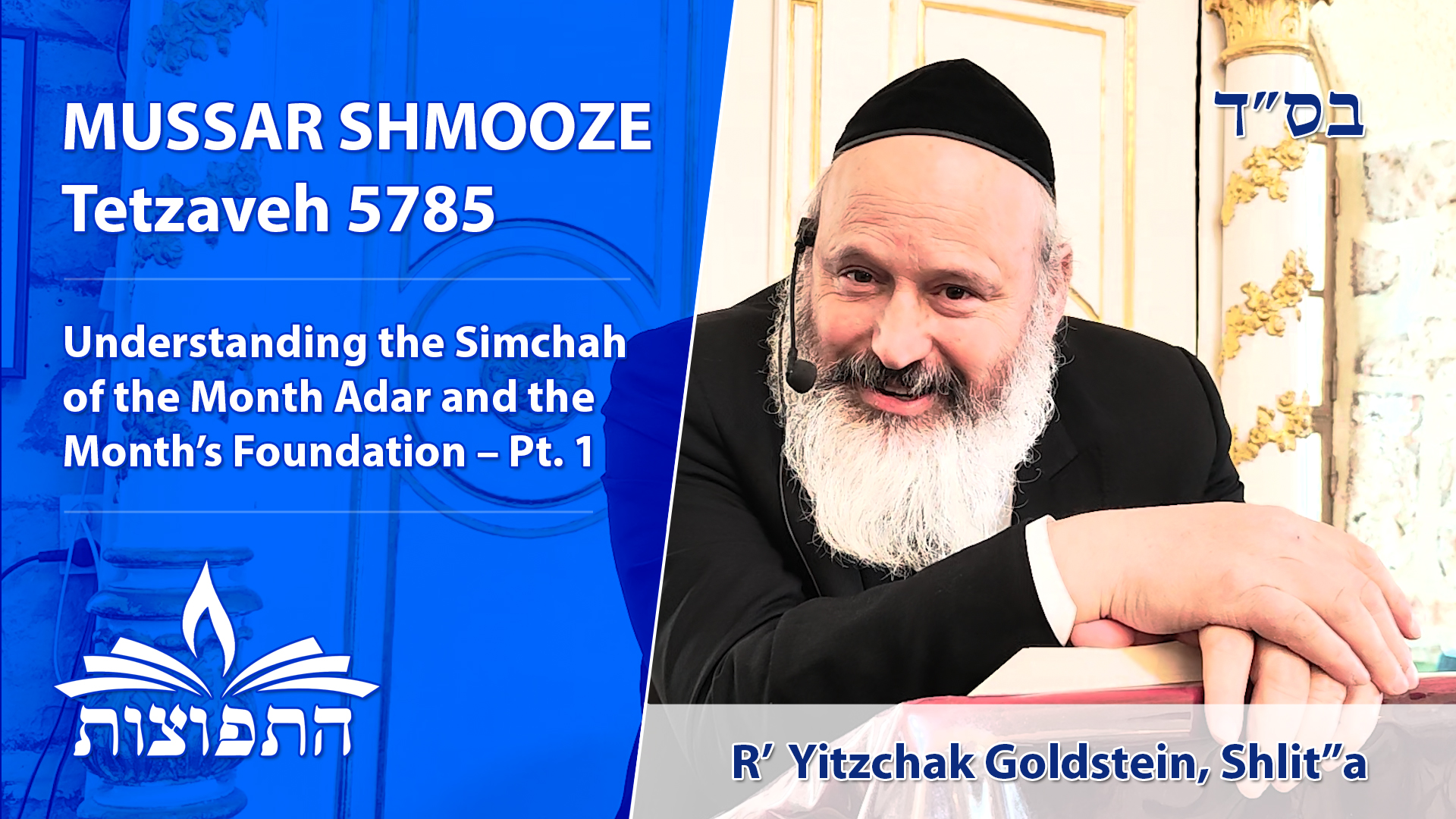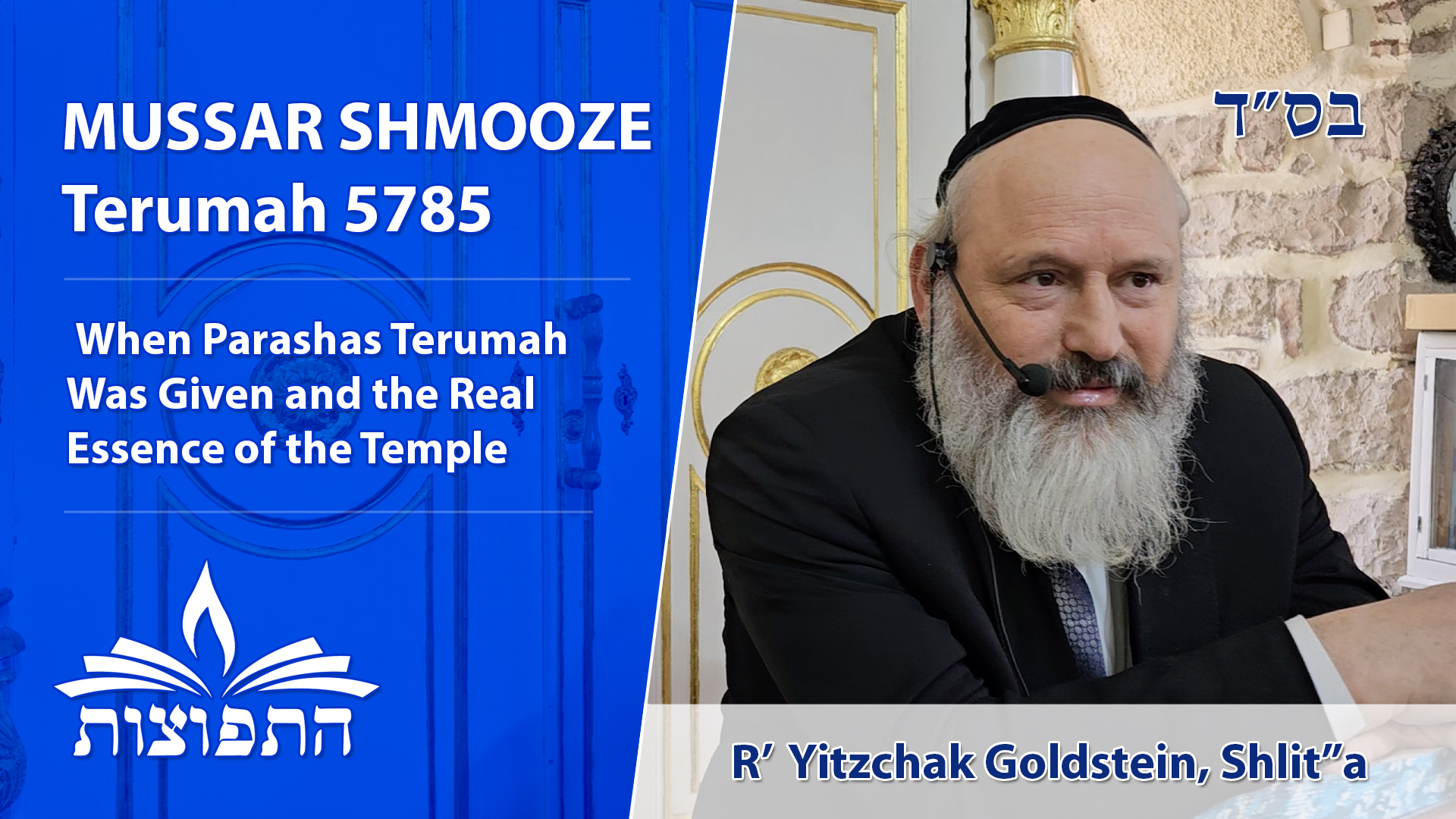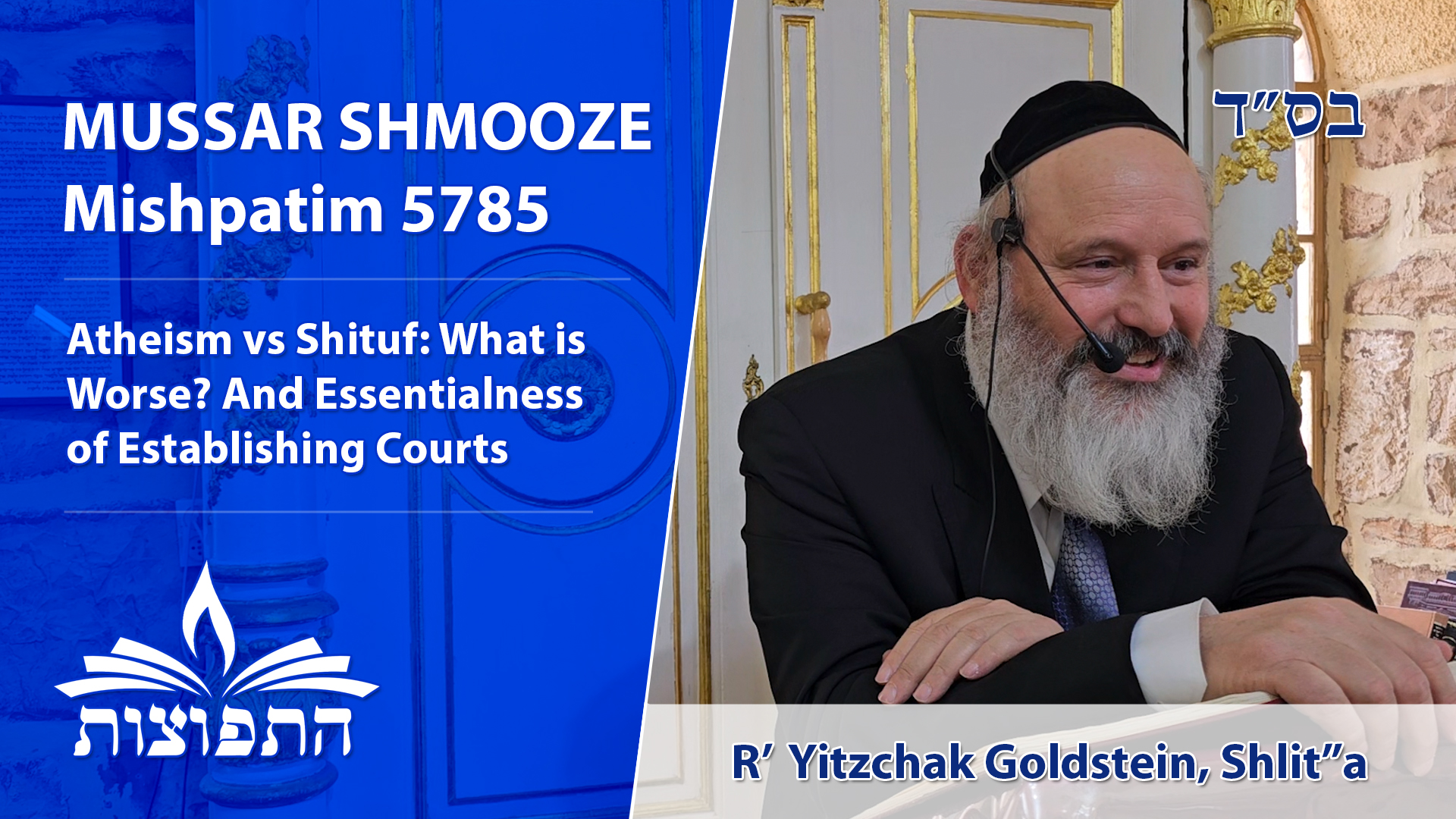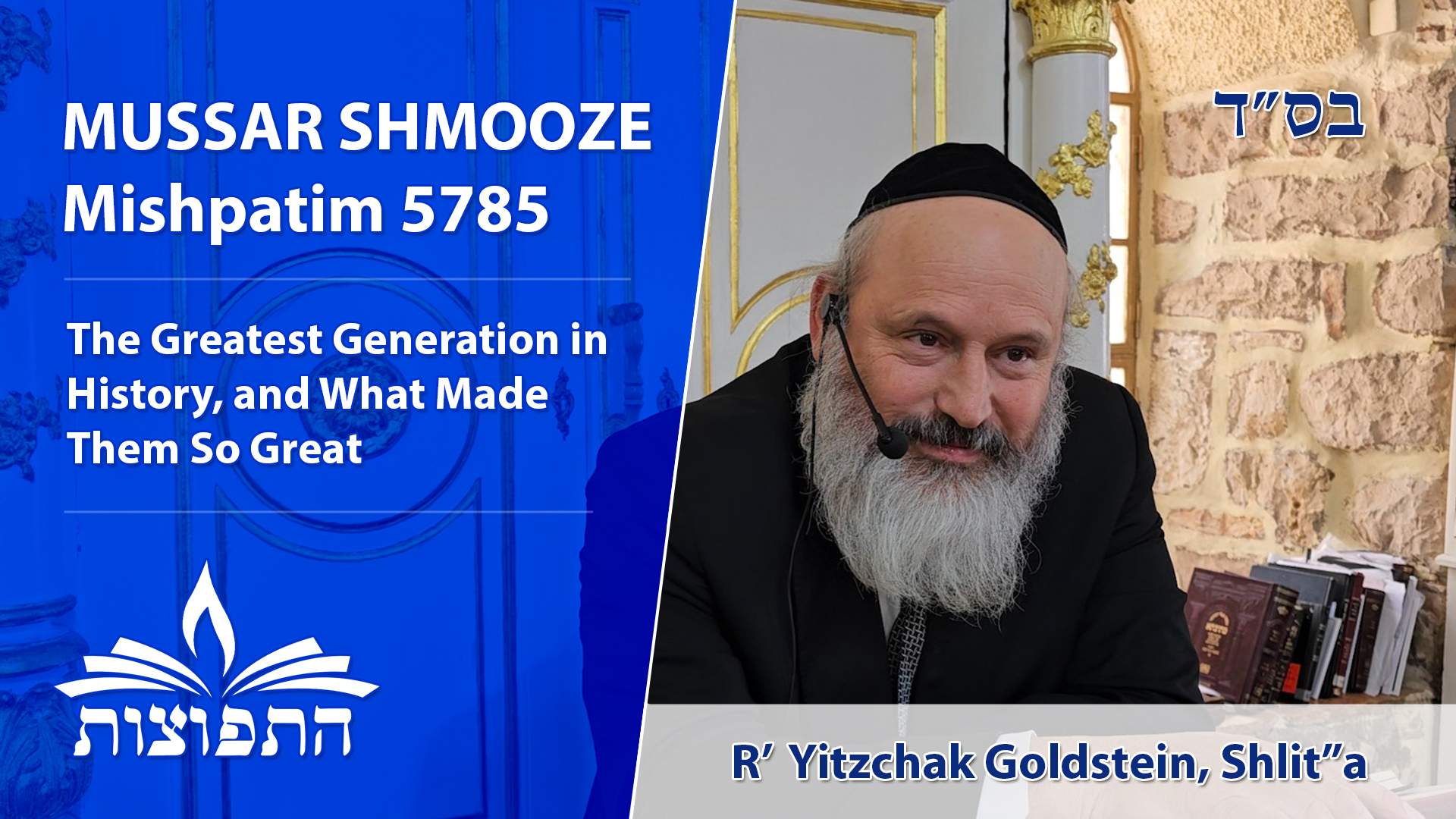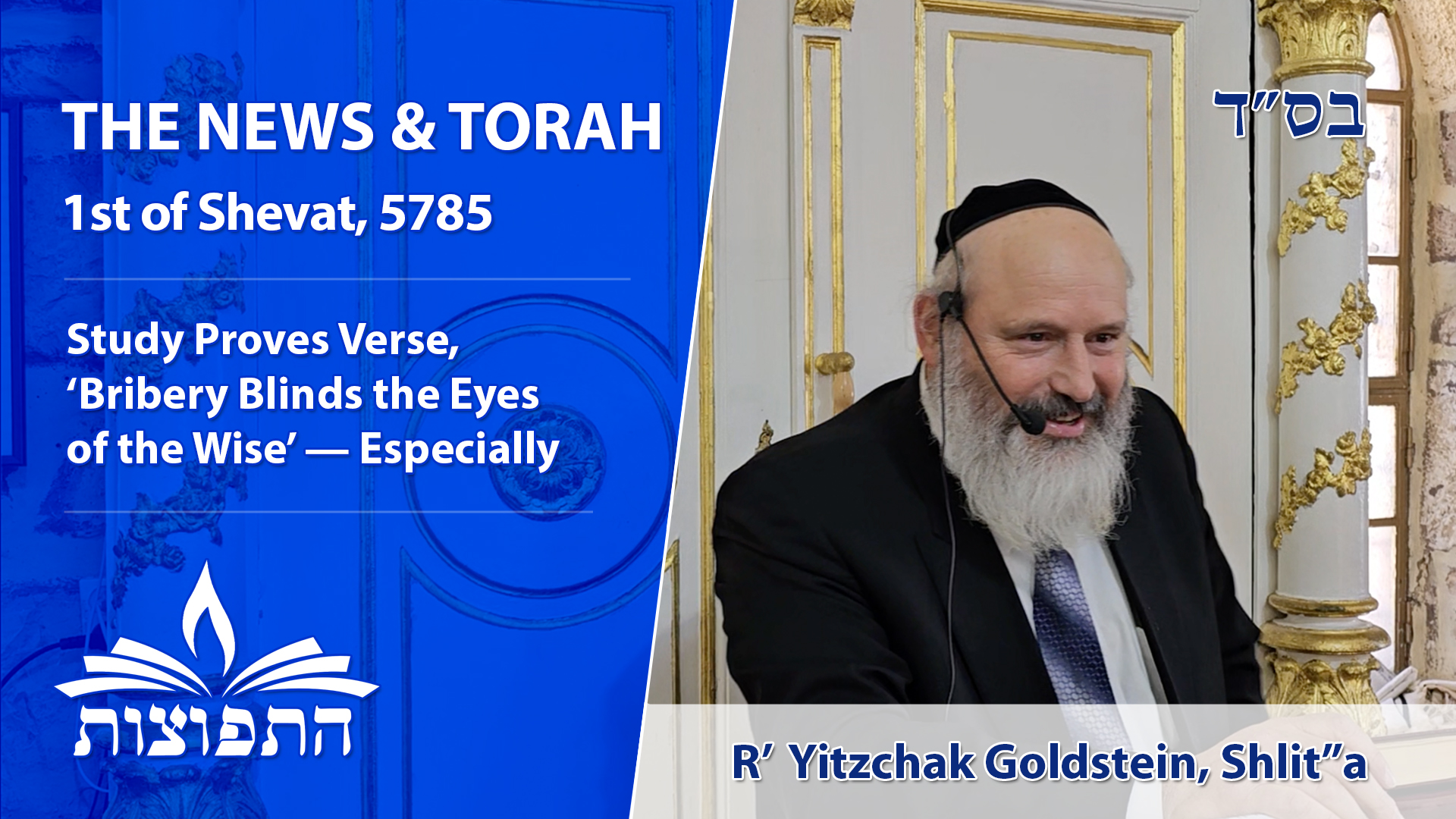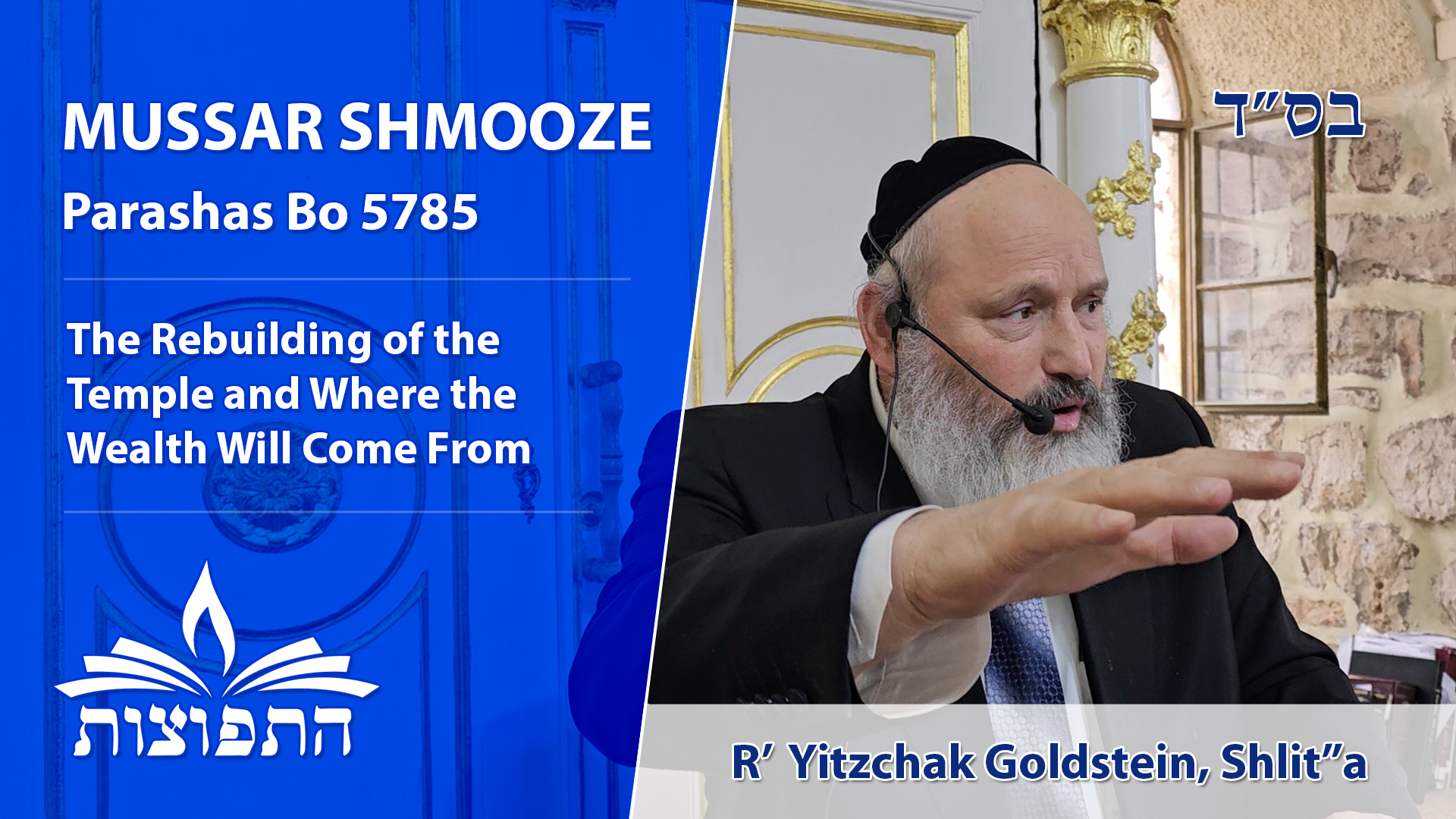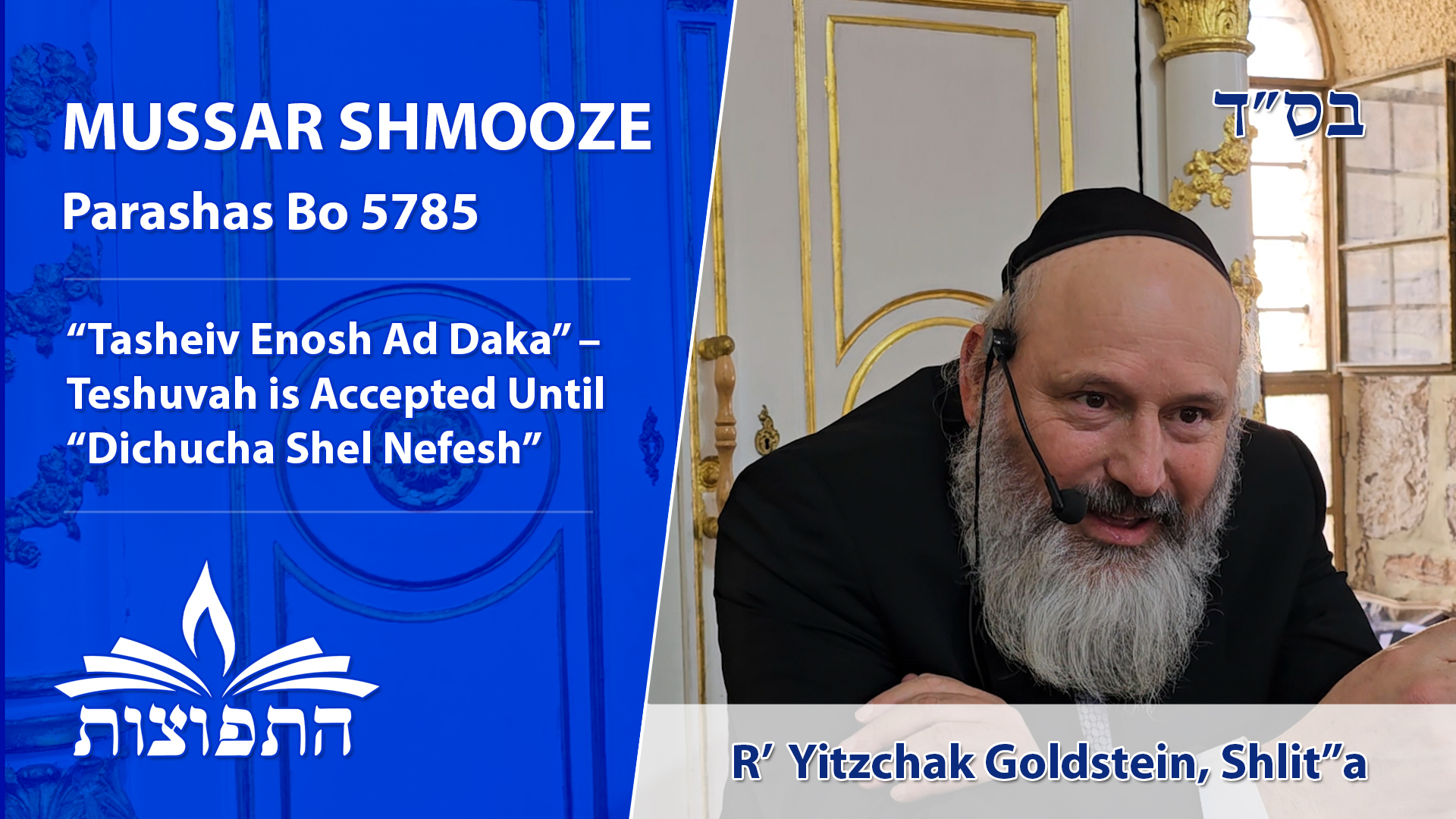Understanding the Simchah
of the Month Adar and the
Month’s Foundation – Pt. 1
The Rosh Yeshiva addresses the question about when HaShem instructed Moshe (Moses) about the building of the Mishkan (Tabernacle) in Parashas Terumah, explaining how we can know it was before the Cheit HaEgel (Sin of the Golden Calf) by understanding the essence and the greatness of the gift of the Mishkan/Beis HaMikdash (Temple).
The Rosh Yeshiva discusses the essential requirement of establishing courts of justice, an obligation not only for the Jewish people but also for the nations in the Torah, as well as the question about what is worse, atheism or shituf, the form of avodah zarah (“idolatry”) that attributes partners to G-d, such as the doctrine of the “Trinity” insisted upon by Christians.
The Rosh Yeshiva reflects upon the principle in Parashas Mishpatim (Shemos / Exodus 21:23-25) about appropriate mida keneged mida (measure for measure) din (judgment) when a person harms another person compared to the actual Jewish understanding and application of the related pesukim (verses), and the real purpose of the Torah.
The Rosh Yeshiva expands upon his mussar shmooze from a couple of weeks ago about why the Jewish people were not able to hear Moshe Rabbeinu (our teacher Moses) in Mitzrayim (Egypt) because of shortness of breath/spirit, contrasting that generation with the greatest generation of all time and the great example they gave us. May we be inspired to emulate their ways, so that we, too, will be at peace in the midst of our challenges.
Study Proves Verse,‘Bribery Blinds the Eyesof the Wise’ — Especially | Rabbi Yitzchak Goldstein, Shlit”a
Why does Parshas Terumah precede the Golden Calf? Discover the Mishkan’s deeper purpose and timeless spiritual lessons.
Join us for a special evening honoring the memory of Rebbetzin Goldstein, our beloved mother, grandmother, and teacher, marking one year since her passing.
The Rosh Yeshiva speaks about HaShem’s instruction to the Jewish people in Mitzrayim (Egypt) to borrow from the Mitzrim (Egyptians) without repayment, why this was done in the light of Torah, and the difference between what happened at that time and what will happen in the end in order to rebuild the Kingdom of HaShem and the Beis HaMikdash, a House of Prayer for All the Nations.
Torah From Zion “Tasheiv Enosh Ad Daka” – Teshuvah is Accepted Until “Dichucha Shel Nefesh” January 28th, 2025 / 128th of Teiveis, 5785 https://youtu.be/4nkYTm9TIQg The Rosh Yeshiva speaks about the greatness of HaShem’s mercy in accepting teshuva (repentance) until “dichucha …

